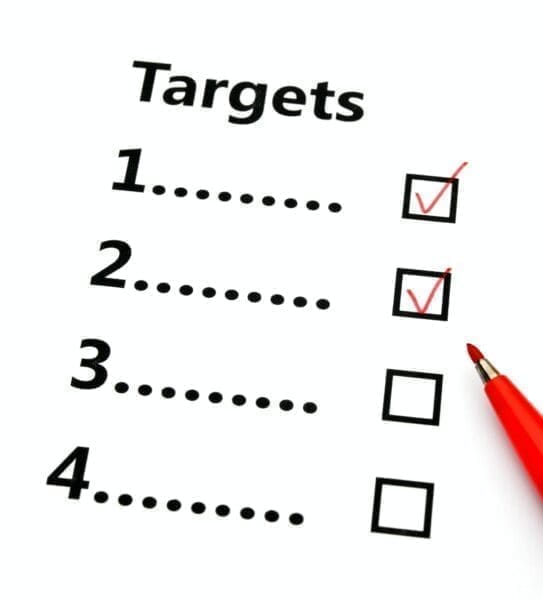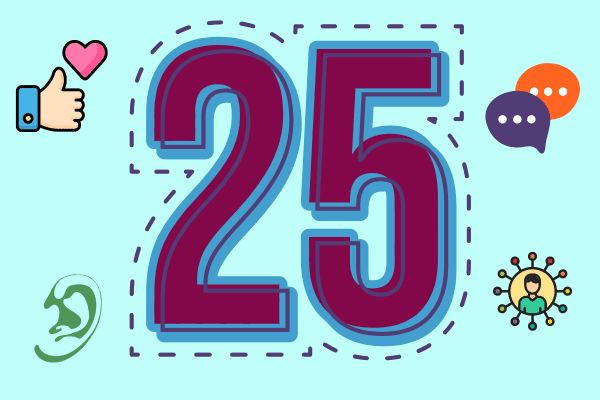How to Get Results & Get What You Want
Getting work done is always a challenge, and part of that challenge is learning how to get the job done better. Effective ways to do things can make a big difference. This post discusses ten ways on how to get results and achieve what you want at work.
But with the working environment changing, the challenges involved for work efficiency have also changed. The HR team ensures that they create optimum working conditions with minimum distractions while creating enough mental break and relaxation activities in an office environment. And seeing your colleague work with you is always a motivator.
But with remote work, the number of distractions and challenges for efficiently working has increased. And to understand how to overcome these challenges, ensure optimum performance and optimse employee development plans, we need to first understand the challenges involved in the hybrid and remote work model.
Challenges Involved in Hybrid and Remote Work
In 2019 the COVID hit, and with it came lockdown and never-ending work from home. Even though the lockdown has ended and we seem to be reaching the end of the pandemic, the work from home and hybrid model looks here to stay.
Remote work gave us the chance to spend time with our loved ones while working, but at the same time, it diminished the line between work life and home life. More and more people, we observed, started working overtime to compensate for the daily home distractions or working lesser hours. But this was not the only challenge.
Difficulty Concentrating
Did you know more than 28% of people working remotely experienced difficulty concentrating on singular work tasks while working remotely?
It should not come as a shocker if you really think about your own day. With a number of tasks coming in, an increased number of meetings, and other added home chores and tasks, it can become at most times to really focus on a single task. This then leads to us employees spending more time on the same task that would initially take them much lesser time to complete.
Increased Number of Meetings
Another issue that the remote work brought on was the increased number of meetings. According to the latest research, since the pandemic hit, employees have had 5% more time on meetings compared to before.
And that’s not it; The time spent with managers in 1:1 meetings has also increased by 24%. If your employees spend so much time in just internal meetings, how can they focus on completing their tasks?
Sticky Learning ® is 7 times more effective than 1-day training courses. Plus, you will get a Chain of Evidence proving your Return on Investment. Discover soft skills training that changes behaviours long term.

Increase in Fragmented Time
As we discussed earlier, the liberty of spending time with our loved ones while working was a blessing that the pandemic gave us, but because of that, the fragmented time also increased by 11%.
And the focussed time blocked for working has become shorter than 2 hours. Increased fragmented time would mean a longer time to finish the task given. And that is what we will discuss in the next session.
Long Time to Complete Tasks
As we just saw the number of distractions and challenges, this should not come as a surprise. Post pandemic, more than 20% of employees have reported taking long hours to complete the tasks that they would complete in less time while working from the office.
And because of this, employees end up overworking and end up feeling burned out.
Employees End Up Putting Off Challenging Work

You like it or not, humans have the tendency to put off challenging work, especially when they are feeling burned out or having certain mental downtime. And because of the pandemic, whether we like it or not, the uncertainty of life, job, blurred working hours, and lockdown did have an effect on our mental health.
And because of that, more and more people were observed putting off challenging tasks. The latest reports suggest that more than 12% of employees reported that they put off challenging tasks at the last minute, which leads to not meeting the deadline.
If you, too, have been facing problems associated with efficient working while working remotely, then go ahead and follow the following tips to improve your work performance and to even streamline your time, work, and home life.
10 Tips on How to Get Results
Here are a few tips for optimising your work efficiency and employee development.
These tips we have derived from some of the most successful examples of employee development plans.
#1 Set Daily Targets

They say if you have a solid foundation, the rest is easy to build. While you may be a daredevil who loves shaking things up and taking risks, sometimes it’s better to remember that there’s no success without hard work.
They also say you should set your goals high to give yourself room for growth. The problem is that when you try setting that new big target, it can often become overwhelming and lead to disappointment, therefore setting milestones to actually achieving it rather than furthering your cause!
#2 Limit the Distractions
There are multiple distractions around the house and even in the workplace. But the good news is some of them can easily be avoided by following the following steps.
- Set a working place with a table and chair; preferably a quiet corner in your house.
- We know you love Netflix, but time to set a timer.
- And the same for Instagram and social media.
- Give awards to yourself for tasks completed.
#3 Plan Your Day

Before we go ahead with planning your day, one of the pro tips is having a to-do list for the day. Writing your tasks for the day helps in better organising your day and avoids the chances of getting sidetracked.
To-do lists can be a lifesaver in achieving your business’s goals, but this all depends on how much work you want to do, the effort you put into them, and what sort of strategy works for you. The key here is to give your tasks due dates rather than leaving them open-ended.
And organise tasks by breaking down large projects into manageable, bite-sized pieces. Next, prioritise the order in which they need to be tackled according to an essential course of action – or what needs to be done first because there is no sense building something if it isn’t going to stand upright!
It’s also important that your team understand the priorities of the organisation, and their tasks should reflect those priorities. Otherwise, they may get off track and lose their focus along the way.
#4 Stop Multitasking
We know you think you are Tony Stark and can actually do multiple tasks at the same while fighting the daily battles.
But we have news for you, my friend; multitasking is a myth!
While multitasking may seem like an efficient way to get more work done in a shorter amount of time, it can actually have the opposite effect.
At some companies, this behaviour is referred to as context-switching. In essence, you are dropping important components of either task you’re working on or halfway completing them before moving on to something else.
#5 Avoid Work Interruptions
Interruptions are more often than not unavoidable, but it’s important that we learn how to avoid them when possible.
Whether it’s a not required meeting request, a WhatsApp notification, social media notifications, your dog or cat interrupting your for their pamper time, or just your family knocking on your door, constant disturbance can cause you to lose focus on the task on hand and end up taking longer on a project than you previously allocated, increasing the risk of running late on a deadline.
#6 Finish Your Task
Rather than switching between half tasks, finish the task on hand and then move on to the next task.
A common mistake made by most people or employees trying to start something new is to abandon a project partway through. Maybe it’s the latest New Year’s resolutions, a new diet, or even a new hobby like learning the guitar. Why does this happen?
It is usually because of a lack of focus and determination in setting that intention on your goals beforehand.
Once started, take some time to evaluate where you’re at with regards to setting your own achievement targets and use these concrete targets as motivation as well as an additional source of feedback during the learning process itself (e.g., weekly reports on progress versus other people in parallel classes will only serve to further foster motivation towards mastering skills more quickly).
Don’t let yourself get burnt out just when you’ve gotten started!
#7 Keep Up to Date With Technology

With new disruptive, cutting edge, and process altering technology hitting the market every day and new processes being created for efficient working. Doesn’t it make sense to keep yourself up to date with the new technology?
Subscribe to new technology papers and news that affect your job and use it to learn about the new disruptive technologies, and try using their plan to see how they can optimise your work.
#8 Keep Learning
With a plethora of courses about improving your work and even skill building, it would be really useless if you don’t actually utilise the time given for upskilling.
One of the biggest advantages of the remote and hybrid work model is no more wasting time in mind-numbing traffic for commuting to the office every day. You can use this time to learn new skills at the start of the day when you are at your freshest and would retain more knowledge.
Trust me when I say, if you are not utilising this gift of time to upskill, the candidates who are gunning for your job are, and if you don’t, you will end up being left behind the race and ultimately become irrelevant.
#9 Communicate Your Task With Your Team
Sometimes it’s difficult to get everyone on your team on the same page, especially when you are not working together but rather from remote locations. Making sure that is accomplished, however, is critical for the overall success of developing and carrying out any kind of project.
And it is crucial you communicate the development of the project to your team. Or to just let them know what you are working on so that your manager and the team can utilise your time more efficiently. Also, there is no chance of double work.
#10 Don’t Be the Jack of All – Delegate Your Tasks

The reason that your team has so many members is because of the workload in the company, and not all tasks can be completed by you. Even though you feel that the only way you can get any work done is by doing it yourself.
Allocate the tasks to the people who specialise in them so that they can finish the task much faster, and you can focus on tasks that are more in priority and suit your skills better.
But if you really have to take up a task because of people in your team not being available or them having bandwidth issues, then ask the colleague who specialises in the field for help and tips, so you don’t have to waste time in researching how to do the project.
Additional Rip – Take Time for Yourself
You can’t work 24/7; you are not a computer!
“Why am I doing this again?”
It is very crucial for efficient work to care for your mental health, just like your physical health.
Mental health is a real concern. If you’re feeling the need to get away from work, it can be tricky. Luckily, there are plenty of mental help options available to re-energise on the job in short bursts. For example, taking a coffee break or spending 10 minutes catching up on your favourite show while you stretch your legs. Of course, sometimes it’s hard to know when enough is enough, so take care of yourself. Whether it’s stepping out for some fresh air or taking a vacation.
Managing yourself is hard, especially when you feel a depressive period coming over you. Sometimes it just gets too exhausting to keep pushing on because of the sheer amount of work required of us at all times. When you feel you can’t focus on any task, it is an indication that it’s time to take a break and regroup your mental state.
These can help:
- Exercises daily
- Mediate
- Keep a routine yourself
- Eat at the right time
- Keep in contact with your family, loved ones, friends, and colleagues
And apart from this, take time out for yourself. Pick a hobby like painting, reading, or anything that your heart desires to give your mind a break.
Nothing is more important than your health!

Parting Words on How to Get Results
Are you a person who is always striving to do better in your work?
Are you looking for some helpful tips on how to improve your work performance?
We sure hope that this article has given you some useful information and answered all your questions about working efficiently. We hope you enjoyed our blog about getting better results in your work. With this knowledge, we know that you can make the most of your work performance and accomplish your goals with ease on projects.




